Archive for November, 2012
Friday, November 30th, 2012
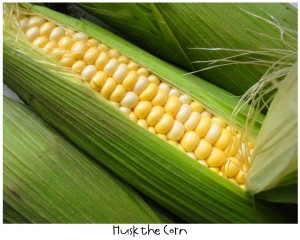
Friday’s poetry prescription is more of a musing. A lovely example of how one creative writing tutor generated the writing flow with one of of his writing participants by using something physical as a writing prompt.
“Once when I was working in a creativity worship in Iowa, an older woman wanted desperately to write poetry about her youth in rural corn country.
I asked her what she used to do that she would like to write about. Among her answers was “husking corn”.
I told her to wait and I dashed out and bought a half dozen ears of corn in a supermarket.
When I returned I had her sit as she used to and encouraged her to visualize the setting. With her eyes closed and sitting as she remembered I had her husk corn.
In less than ten minutes she produced her first poem.
Within an hour she had written nearly a dozen”.
Bob Samples
http://judithpordon.tripod.com/poetry/how_to_write_quotes.html
No Comments
Friday, November 30th, 2012

Even after all this time
The sun never says to the earth, “You owe me.”
Look what happens with a love like that.
It lights up the whole sky.
Hafiz (14th century Persian Mystic and poet)
Poetic Inquiry
1. What is the kindest thing someone has ever done for you where they expected nothing in return?
2. What was the kindest thing you’ve ever done for someone for which you expected nothing in return
3. Today, right now, this very moment what are you truly grateful for?
No Comments
Friday, November 30th, 2012
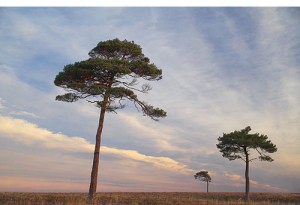
Have you ever noticed how many trees resemble human beings? Really, take a good look at the shapes and faces of trees as you manoeuvre through your day and see how many resemble the people you know, love or work with. We can use poetry in the same way as we do writing prompts. Poems help us to unravel ourselves on the page and you can use a poem to warm up on the page or to kick start your writing practice.
Poems can be a great tool for reflective inquiry into the self when you’re not sure where to start. They are a great way to contain emotions when writing about difficult or complex emotions or events. I remembered a poem that we examined on my Masters in creative writing and personal development. It was by the Scottish poet Jackie Kay:
My grandmother is like a Scottish pine
tall, straight backed, proud and plentiful
a fine head of hair, greying now
Tied up in a loose bun.
Her face is ploughed land
Her eyes shine rough as amethysts.
She wears a plaid shawl with the zeal of an Amazon
She is one of those women
burnt in her croft rather than moved off her land
She speaks Gaelic mostly,
English only
when she has to, then its blasphemy.
My grandmother sits by the fire and swears
“There’ll be no darkie baby in this house”
My grandmother is a Scottish pine
Tall, straight-backed, proud and plentiful
Her head tied with pins in a ball of steel wool
Her face is high as ice
And her eyes are amethysts
- That Distant Apart, 1991 Turret Books
The poem evoked ambivalent memories of my own difficult relationship with my paternal grandmother. Memories I have conveniently chosen not to dwell on. I was five years old when she came from the Caribbean to join the family in the UK. She was cold, cruel and nasty to me for the two years that she stayed with us. I remember her stay as a very bleak time.
After reading the poem for this blog I took to the page to record my memories of grandmother and me and in my writing I recalled some stark memories of her. The lines on her face from where she always frowned remind me of the lines on tree bark. I remembered a transparent bag she carried which intrigued my childhood curiosity. Her shape was less the slender frame of a pine tree and more suited to that of a beech or an oak. The poem provided a ‘safe enough’ space for me to explore grandmother and me.
But there was plenty more to explore about the poem. I enjoyed the way Kay uses images and metaphors of the earth. I particularly line her opening line as I imagined her grandmother’s height and frame captured in the image of the pine tree. Kay caught me by surprise as I typed out the poem when I realised her sentiments about her grandmother changed halfway through.
The steadiness of the image of the Scottish pine tree at the start and the close of the poem allow me to navigate my way through the shadow side Kay presents of her grandmother. There is space to hold the line. “There’ll be no darkie baby in this house, “ and all that this explicit line suggests. I am left with the upfront image of the grandmother’s shadow side, “her head tied with pins in a ball of steel wool.” My Dad was a carpenter and I knew the feel and coarse texture of steel wool that would slice your fingers open with the barest amount of pressure to the skin.
Poetic Inquiry:
1. What are your personal views about the poem?
2. What was your relationship like with any of your grandparents or great grandparents if you knew them? Write about your memories.
3. What are your personal stories of racism or of being ostracised or excluded growing up either as a receiver or as an observer?
4. Whose faces and stature do you see in the trees around you?
No Comments
Thursday, November 29th, 2012
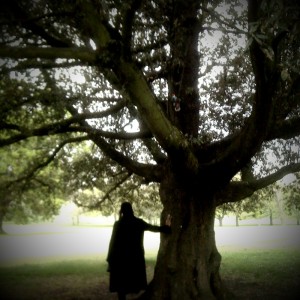
This is me standing with one of my favourite Oak trees, Sanctuary. On many occasions she has been my refuge. The quote below is by Karen Salmansohn and speaks to the strength of the Oak tree.
“Again let’s consider the mighty Oak tree. When a storm hits it, the mighty Oak is meant to grow into an even mightier Oak – that is if the mighty Oak intuitively bends to endure these stormy winds and thereby grows stronger trunks and branches. Yep – the storm is actually in the long run the best thing to happen to a mighty oak because it helps the mighty Oak to grow into its highest, possible, mightiest potential.”
Karen Salmansohn blog post 2nd November 2012 http://notsalmon.com
Photo credit: Robin Rezende
No Comments
Thursday, November 29th, 2012

For the last two days I’ve travelled four hours each day between London and Manchester on a Virgin train. I’m least distracted when I write on a train or a plane. I’ve worked out the reason for this, both are spaces where I experience least distractions. At home a thousand things can easily pull me away from the page, there’s a book to go find, a quote to go searching for or should I clean the bathroom, load the dishwasher, do my emails or paint my nails? But when I’m on a plane or a train these distractions are minimized. If I’m lucky to get a seat in a quiet coach on a Virgin train I’ll have very little noise to distract me from my writing.
On planes with the minimum scenery out the window and few spaces to walk around in I’m stuck usually for several hours in my seat. And bums on a seat is an essential requirement for the serious writer. Perhaps that why so many writers including Maya Angelou write in rooms without a view. They’ve cottoned on to the no distraction rule. Now I’m not suggesting that this is how I want to write all the time but it really does help for those times when focus and concentrating on what’s in front of me is just what is needed.
1. Where are the spaces you are least distracted?
2. What kind of writing is best to do in this space? First drafts, editing, playing with ideas?
3. Plan to write in those spaces as often as you can but also locate the quiet spots in your neighbourhood.
4. Or if all else fails buy a pair of sound deafening ear headphones.
No Comments
Monday, November 26th, 2012
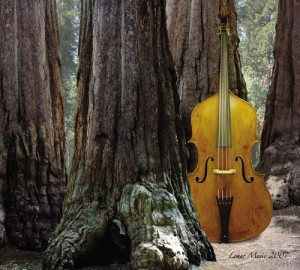
He is a drunk leaning companionably
Around a lamp post and doing up
With intermittent concentration
Another drunk’s coat
He is a polite but devoted Valentino
Cheek to cheek, forgetting the next stop
He is feeling the pulse of the fat lady
Or cutting her in half.
But close your eyes and it is sunset
At the edge of the world. It is the language
Of dolphins, the growth of tree roots
The heart beat slowing down.
- John Fuller Collected Poems 1996 tfl.gov.uk/poems
This was the poem that greeted me last week on the Jubilee line tube on my way to an early morning supervision session in central London. Standing in a packed tube carriage I was not in the right position to start fiddling around with my iphone so my eyes landed on the red and white advert which showcases the collection of over 3,000 poems publicized on the tube network.
The selection of poems is changed three times a year and includes diversity of poems including, classical, contemporary, international and up and coming poets. It has been an excellent way of introducing the public to poetry.
With the poem right in front of me I took my time and read through each line and very quickly found myself immersed in the poem, word-by-word, line-by-line. I was pulled in. Not only was I sinking into the poem I felt moved by it. I lost track of time and where I was. It felt like the more I engaged with the poem the more I was clearing a space in my mind. The words soothed me, relaxed me, and opened me out. I felt the world inside me open out and expand. An emptying of the previous days to do list and the list of the day ahead seemed a distant away from where I stood and how I felt in that moment.
Two lines in particular mesmerized me and I began a meditation into the two lines lost in my own personal translation of what those words meant to me.
“At the edge of the world. It is the
Language of dolphins, the growth of the tree roots.”
I became so engrossed I missed the announcement of the arrival at my stop Baker Street and bundled myself out of the carriage doors just as the doors were about to close.
My encounter with the poem took all of 10 minutes for the poem to open up a space in me. It was the perfect clearing of my mind for my supervision session and a practice I set an intention last week to integrate into my preparation for future coaching and supervision sessions.
Turned out this was not just what my psyche needed. My supervision session weaved a dance of natural curves and actions that had us both reveling at what we both gained from our time together.
Reading a poem before I go into a coaching or supervision session has now been added to my list of ways of clearing my mind and thoughts and going through the process of emptying.
1. What do you do to empty yourself before a coaching or supervision session?
2. What activities open you out?
3. What practices do you do to either prepare yourself for your coaching and supervision whether you’re receiving coaching or you’re someone offering coaching or supervision?
No Comments
Monday, November 26th, 2012
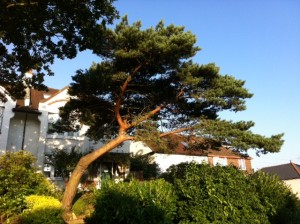
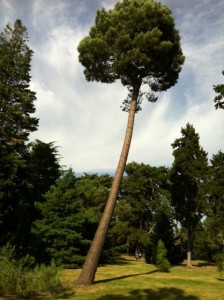
All photo’s Jackee Holder 2012
I love taking photos of solitary or almost solitary trees. This first shot is of a tree a couple of streets away from where I live (although not entirely alone I like the way the tree holds its own spot. The second image which I just love is of a tree I came across in one of my favourite green spaces in London, Kew Gardens. This tree has definitely carved out a spot all of its own.
I have a stunning book of tree images, Trees edited by Lisa Purcell each image accompanied by a tree quote. Here are a couple of the quotes about solitary trees:
” Earth teach me the courage of the tree that stands all alone.” – William Alexander
” Trees are much like human beings and enjoy each other’s company. Only a few love to be alone.”
As you go about your week notice the trees that stand alone. What do you notice about the trees aura and presence that may be different from when trees are grouped together?
How about taking a few snapshots of solitary trees you come across?
No Comments
Monday, November 26th, 2012

What’s in the trunk? In fact what on earth is this strange looking item? I took this photograph of what we call the trunk from my parents home on the Caribbean island of Barbados. The trunk was a very familiar item to many African Caribbean families in the 60′ and 70′s. Our parents would tell us stories of the items stored in the trunk which either accompanied them on their sea voyage from the West Indies or became a permanent feature in their family homes in the UK.
Today’s Visual Writing prompt invites you to write about what may have been stored in the trunk by someone travelling from the Caribbean in the 1960′s? If you were to open it what would you find?
Free write for 15 minutes.
No Comments
Friday, November 23rd, 2012

The Peace Of Wild Things
When despair for the world grows in me
and I wake in the night at the least sound
in fear of what my life and my children’s lives may be,
I go and lie down where the wood drake
rests in his beauty on the water, and the great heron feeds.
I come into the peace of wild things
who do not tax their lives with
forethought
of grief.
I come into the presence of still water.
And I feel above me the day-blind stars
waiting with their light. For a time
I rest in the grace of the world, and am free.
- Wendell Berry from Collected Poems
Poetic Inquiry
1. What nature spots or wild places bring you alive?
2. Write about one of those places describing it in every detail to someone who was blind. Write descriptively and about how the place makes you feel.
3. Schedule in a date with nature
No Comments
Friday, November 23rd, 2012
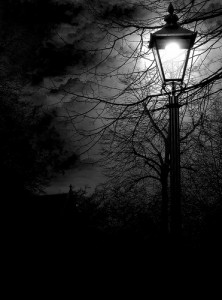
Sweet Darkness
When your eyes are tired
the world is tired also.
When your vision has gone
no part of the world can find you.
Time to go into the dark
where the night has eyes
to recognize its own.
There you can be sure
you are not beyond love.
The dark will be your womb
tonight.
The night will give you a horizon
further than you can see.
You must learn one thing:
the world was made to be free in.
Give up all the other worlds
except the one to which you belong.
Sometimes it takes darkness and the sweet
confinement of your aloneness
to learn
anything or anyone
that does not bring you alive
is too small for you.
- David Whyte (House of Belonging) Many Rivers Press 1998
Poetic Inquiry
1. How did this poem make you feel when you read it?
2. What line reached out to you?
3. What themes does this remind you of in your work as a coach?
4. When have you come through a dark or difficult time in your own life?
5, What were the gifts on the other side?
6. Who or what is too small for you in your life right now?
7. Who in your life makes you feel alive?
8. What activities bring you to life? Feel right? Feel energizing?
9. What activities deaden you?
10. What relationships no longer have the right energy or connection for you?
11. What can you see beyond the horizon?
No Comments














